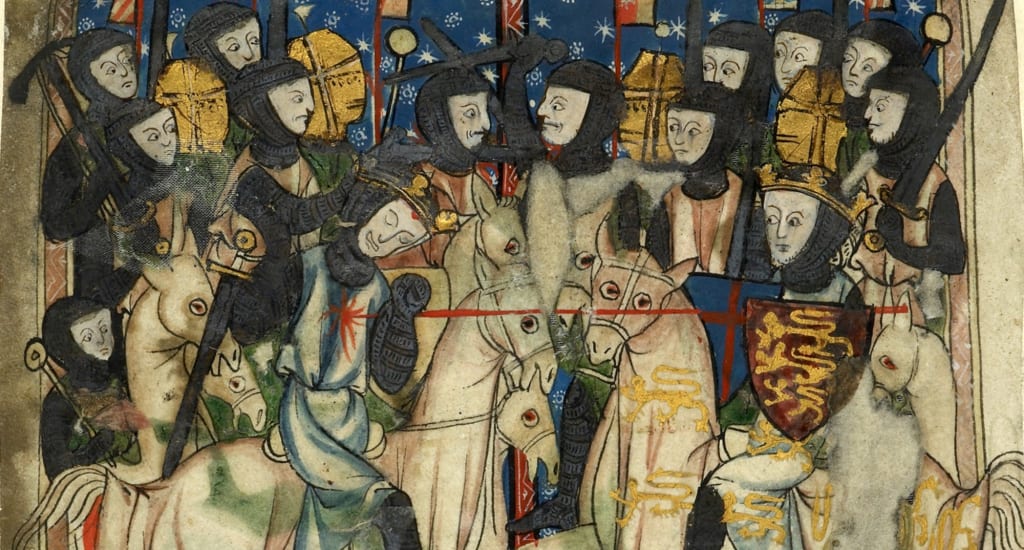English is not normal
No, English isn’t uniquely vibrant or mighty or adaptable. But it really is weirder than pretty much every other language

English speakers know that their language is odd. So do people saddled with learning it non-natively. The oddity that we all perceive most readily is its spelling, which is indeed a nightmare. In countries where English isn’t spoken, there is no such thing as a ‘spelling bee’ competition. For a normal language, spelling at least pretends a basic correspondence to the way people pronounce the words. But English is not normal.
Spelling is a matter of writing, of course, whereas language is fundamentally about speaking. Speaking came long before writing, we speak much more, and all but a couple of hundred of the world’s thousands of languages are rarely or never written. Yet even in its spoken form, English is weird. It’s weird in ways that are easy to miss, especially since Anglophones in the United States and Britain are not exactly rabid to learn other languages. But our monolingual tendency leaves us like the proverbial fish not knowing that it is wet. Our language feels ‘normal’ only until you get a sense of what normal really is.
There is no other language, for example, that is close enough to English that we can get about half of what people are saying without training and the rest with only modest effort. German and Dutch are like that, as are Spanish and Portuguese, or Thai and Lao. The closest an Anglophone can get is with the obscure Northern European language called Frisian: if you know that tsiis is cheese and Frysk is Frisian, then it isn’t hard to figure out what this means: Brea, bûter, en griene tsiis is goed Ingelsk en goed Frysk. But that sentence is a cooked one, and overall, we tend to find that Frisian seems more like German, which it is.
We think it’s a nuisance that so many European languages assign gender to nouns for no reason, with French having female moons and male boats and such. But actually, it’s us who are odd: almost all European languages belong to one family – Indo-European – and of all of them, English is the only one that doesn’t assign genders that way.
More weirdness? OK. There is exactly one language on Earth whose present tense requires a special ending only in the third‑person singular. I’m writing in it. I talk, you talk, he/she talk-s – why just that? The present‑tense verbs of a normal language have either no endings or a bunch of different ones (Spanish: hablo, hablas, habla). And try naming another language where you have to slip do into sentences to negate or question something. Do you find that difficult? Unless you happen to be from Wales, Ireland or the north of France, probably.
English started out as, essentially, a kind of German. Old English is so unlike the modern version that it feels like a stretch to think of them as the same language at all. Hwæt, we gardena in geardagum þeodcyninga þrym gefrunon – does that really mean ‘So, we Spear-Danes have heard of the tribe-kings’ glory in days of yore’? Icelanders can still read similar stories written in the Old Norse ancestor of their language 1,000 years ago, and yet, to the untrained eye, Beowulf might as well be in Turkish.
The first thing that got us from there to here was the fact that, when the Angles, Saxons and Jutes (and also Frisians) brought their language to England, the island was already inhabited by people who spoke very different tongues. Their languages were Celtic ones, today represented by Welsh, Irish and Breton across the Channel in France. The Celts were subjugated but survived, and since there were only about 250,000 Germanic invaders – roughly the population of a modest burg such as Jersey City – very quickly most of the people speaking Old English were Celts.
Crucially, their languages were quite unlike English. For one thing, the verb came first (came first the verb). But also, they had an odd construction with the verb do: they used it to form a question, to make a sentence negative, and even just as a kind of seasoning before any verb. Do you walk? I do not walk. I do walk. That looks familiar now because the Celts started doing it in their rendition of English. But before that, such sentences would have seemed bizarre to an English speaker – as they would today in just about any language other than our own and the surviving Celtic ones. Notice how even to dwell upon this queer usage of do is to realise something odd in oneself, like being made aware that there is always a tongue in your mouth.
At this date there is no documented language on earth beyond Celtic and English that uses do in just this way. Thus English’s weirdness began with its transformation in the mouths of people more at home with vastly different tongues. We’re still talking like them, and in ways we’d never think of. When saying ‘eeny, meeny, miny, moe’, have you ever felt like you were kind of counting? Well, you are – in Celtic numbers, chewed up over time but recognisably descended from the ones rural Britishers used when counting animals and playing games. ‘Hickory, dickory, dock’ – what in the world do those words mean? Well, here’s a clue: hovera, dovera, dick were eight, nine and ten in that same Celtic counting list.
''Pretty soon their bad Old English was real English, and here we are today: the Scandies made English easier''
About the Creator
Enjoyed the story? Support the Creator.
Subscribe for free to receive all their stories in your feed. You could also pledge your support or give them a one-off tip, letting them know you appreciate their work.





Comments
There are no comments for this story
Be the first to respond and start the conversation.